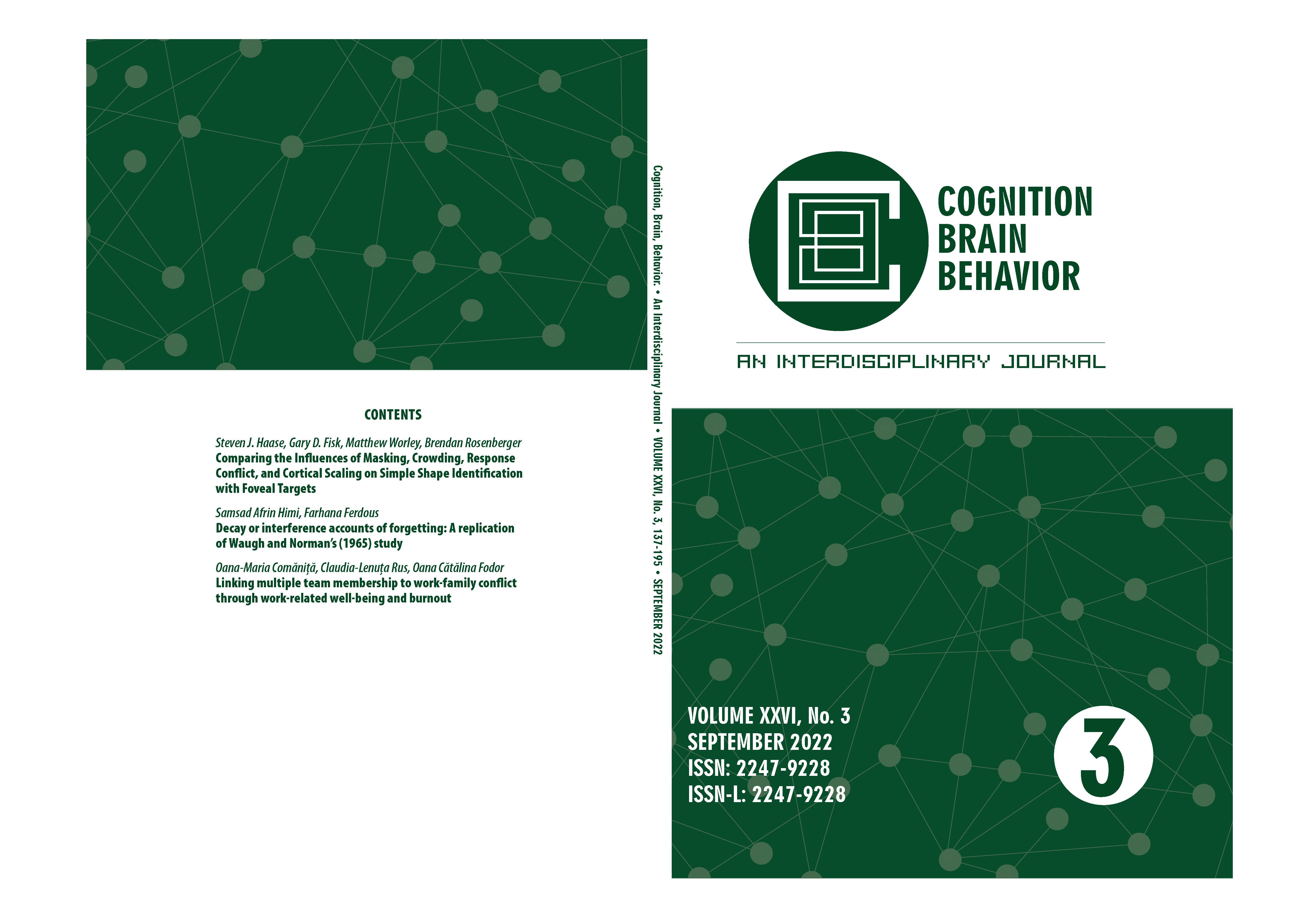Decay or interference accounts of forgetting: A replication of Waugh and Norman’s (1965) study
Decay or interference accounts of forgetting: A replication of Waugh and Norman’s (1965) study
Author(s): Samsad Afrin Himi, Farhana FerdousSubject(s): Cognitive Psychology, Methodology and research technology, Health and medicine and law
Published by: Editura Asociației de Științe Cognitive din România (ASCR)
Keywords: short-term memory; forgetting; interference; decay; replication;
Summary/Abstract: Forgetting − the loss of information − in short-term memory occurs either owing to interference with other information or decay over time. According to an influential study by Waugh and Norman (1965), retroactive interference causes forgetting. The current study attempted to reproduce this conclusion in a Bangladeshi culture with stronger statistical power. Thirty four undergraduate students were examined at two different stimulus presentation paces (slow/fast pace) with varying numbers of interfering digits. The presentation pace was used to index decay, and the number of interfering items was used to index interference. The findings of a direct replication effort revealed that recall performance decreased with increasing interfering items, although the pattern of decreased performance did not reflect the original study. Furthermore, the slow pace condition yielded better outcomes than the fast pace compared to decay account. The findings pave the way for reconsidering how retroactive interference influences mental practice effects.
Journal: Cognition, Brain, Behavior. An Interdisciplinary Journal
- Issue Year: XXVI/2022
- Issue No: 3
- Page Range: 159-172
- Page Count: 14
- Language: English
- Content File-PDF

